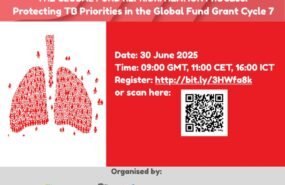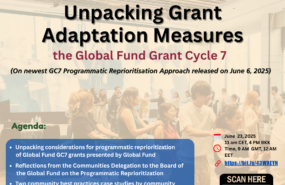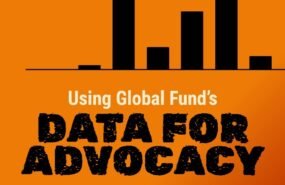TB People is looking for Six Regional Focal Points including from EECA to support global consultation and joint position paper on TB and PUD
- 17.09.2020 12:41
- Post Views: 688
In line with the Memorandum of Understanding, signed between INPUD, the International Network of People who Use Drugs, and TBpeople, the global network of people affected by tuberculosis (TB), the two networks committed to “collaborate on raising the profile of the problem of TB among people who use drugs including the impact of prohibition and systematic discrimination of people who use drug to regard to the promotion of integrated people-centered services for people who use drugs and are affected by TB”. As a first step, the two networks agreed to develop a joint position paper on TB among people who use drugs, which will lay the foundation for future advocacy and programs.
The joint position paper on TB among people who use drugs (position paper) will:
- be based on existing literature on TB among people who use drugs
- highlight current knowledge and data and research gaps and explore the link between poverty, social exclusion, and stigma at the intersection between drug use and TB, and the multiplier effect of drug prohibition
- outline integrated people-centered services for TB prevention, diagnosis, treatment, care and support for people who use drugs
- identify advocacy and programmatic priorities for the two networks, their members and partners
To develop the position paper, a working group (WG) was established consisting of focal points of the two networks, acting as working group co-chairs, and up to eight members of the two networks from among people who use drugs and who are affected by TB (i.e. who have had TB or whose close one(s) had TB). The JWG has produced a first draft of the joint position paper. To continue the work on the draft, TBpeople seeks to hire six regional focal points (RFPs), who will support the process of a global consultation by covering the following six regions: European Region (including Eastern Europe and Central Asia); Americas; Middle East and North Africa; Anglophone Africa; Francophone Africa; Asia and Pacific.
Qualifications
An RFP should meet the following criteria:
- excellent command of spoken and written English; native or highly fluent speakers of the following languages are strongly preferred:
- Russian for European region
- Spanish for the Americas
- Arabic for Middle East and North Africa
- French for Francophone Africa
- Swahili, Hausa or another widely spoken African language for Anglophone Africa
- Bahasa, Hindi, Tamil or another widely spoken Asian language for Asia and Pacific
- have documented background (activism, academic, or professional-related) in TB among people who use drugs
- have first-hand experience or documented active engagement in TB and drug user activism as well as a full understanding of the issues addressed in the position paper
- have prior experience in conducting surveys, interviews or other participatory research
- have extensive connections with civil society and community groups and activists, working on issues of TB and people who use drugs in their respective region
- be committed to work closely with and be guided by the Editor, and to meet agreed timelines
Full text of proposal can be found here
TBpeople is the global network of people affected by TB. Started in 2016, the network is driven by its vision, World Free Of TB, and its mission, Unite People, Defeat TB. In 2019, TBpeople proudly received the Stop TB Partnership’s Empowering Community Voices Award for its dedication to TB survivors and people affected by TB through community mobilization and human rights advocacy.
The International Network of People who Use Drugs (INPUD) is a global peer-based organisation that seeks to promote the health and defend the rights of people who use drugs, by challenging stigma, discrimination, and the oppression and criminalisation of people who use drugs and its impact on the drug-using community’s health and rights.
Services for migrants and refugees from Ukraine – HIV/TB care with a focus on key populations
Due to the increasing flows of refugees from Ukraine because of Russia’s invasion of Ukraine, the EECA Regional Platform created a spreadsheet to fill contacts details of face-to-face and online services for refugees and migrants (with a focus on HIV/TB care and key population groups).
Regional Platform – EECA
This web-resource is a part of new regional communication and coordination project “Regional Civil Society and Community Support, Coordination and Communication Platform - EECA”, implemented by Eurasian Harm Reduction Association (EHRA).
Tags
See also
-
Webinar: Using Global Fund's Data for Advocacy 12.06.2025 12:00
-
GC7 Grant Reprioritization: Updated Timelines 10.06.2025 14:37
-
GFAN reports back: 53rd Global Fund Board meeting 26.05.2025 14:26







